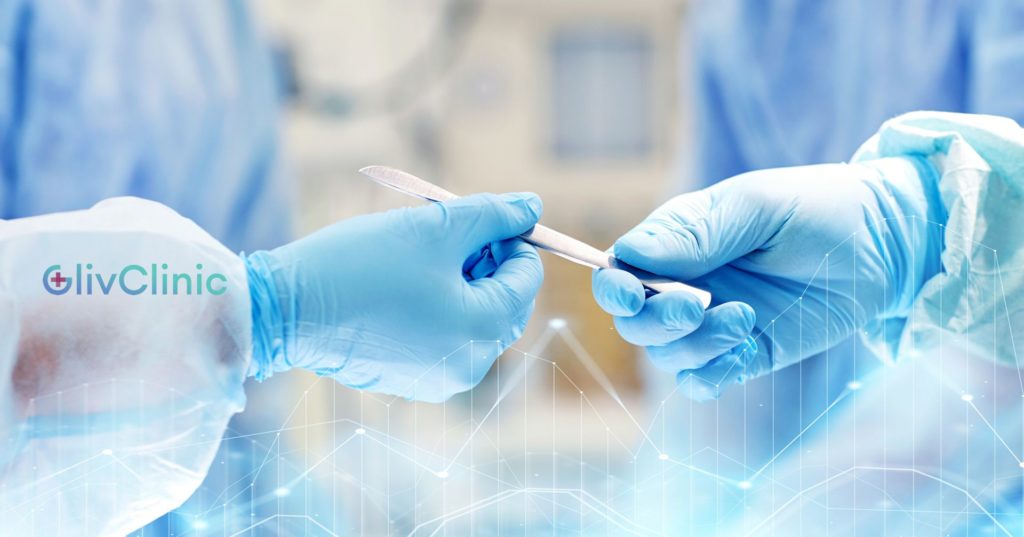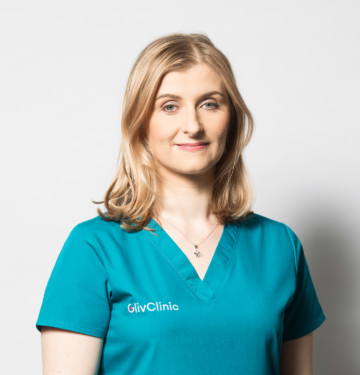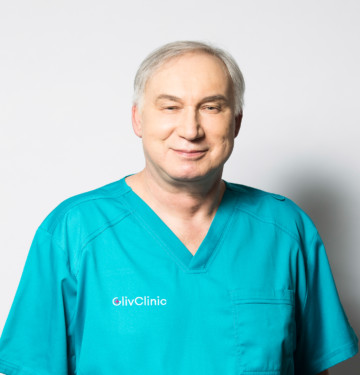- Tel: +48 32 600 7980
- Gliwice, Katowice
- kontakt@glivclinic.pl


General surgeon – what do they do?
A general surgeon is a doctor with extensive general medical knowledge and the ability to perform most surgical procedures. After a proper diagnosis, the surgeon proposes surgical treatment, presents the possibilities, limitations, and the expected end result. The surgeon works closely with the anesthesiologist and doctors of other specialties, the so-called non-surgical.
What diseases does a general surgeon treat?
At the GlivClinic Medical Centre, a general surgeon performs surgical procedures, e.g.:
- removes pigmented skin lesions;
- removes atheromas, fibromas, lipomas and other tumors of the subcutaneous tissue;
- incises and heals integumentary abscesses;
- removes ingrown nails;
- removes and heals scars;
- heals post-traumatic and postoperative wounds;
- deals with the treatment of diabetic foot syndrome;
- heals chronic wounds and ulcers of the lower limbs.
The surgeon diagnoses and directs for surgical treatment in the surgical ward such diseases as:
- inguinal, umbilical, abdominal, postoperative scar;
- gallbladder diseases: cholelithiasis, gallbladder polyps, cholecystitis and calculous cholecystitis;
- acute abdominal diseases such as pancreatitis, gastrointestinal obstruction, gastric perforations due to peptic ulcer disease and others, intestinal perforations, appendicitis;
- diabetic complications, e.g. diabetic foot syndrome.
The surgeon also diagnoses and directs for combined treatment:
- head and neck tumors;
- neoplastic lesions of the esophagus;
- tumors, inflammations, bleeding from the stomach and duodenum;
- large intestine tumors;
- performs biopsies of the thyroid gland, breast tumors and others.
When should you consult a general surgeon?
It is worth contacting a general surgeon when you notice symptoms suggesting a disease that requires surgical treatment. Worrying symptoms include, for example:
- suspicious skin pigmentation changes;
skin and subcutaneous nodules;
painfully ingrown abnormal nails;
inflammatory changes such as ulcers, boils;
hard-to-heal wounds;
recurrent biliary colic;
stomach pain;
changes in bowel habits;
the appearance of hernias;
bleeding from the lower and upper gastrointestinal tract;
weight loss without a reduction diet.
What does a typical visit look like?
The general surgeon will start the visit by taking a medical interview and ask what prompted you to visit. This means a request to present the disturbing symptoms in the most orderly manner possible. It is good to state how long the symptoms have been present, whether their severity changes over time, and whether any diagnostics and treatment have already been performed. If you have had any diagnostic tests, take the results with you. The information obtained will enable the surgeon to make a decision on further procedures, necessary diagnostic tests, and selection of the optimal treatment method.
At the surgical clinic of the GlivClinic Medical Center, we provide a comprehensive and comfortable approach to the patient – you can immediately make an appointment for a consultation with one of our general surgeons from Gliwice. If you want to sign up for a visit, we encourage you to use the online registration via the widget available on our website or the znanylekarz.pl portal.
Subscribe our
newsletter
***We send one a month.



